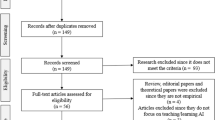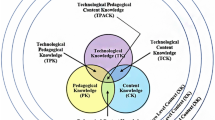Abstract
A key signpost to a profession is clarity of disciplinary knowledge. In this paper I describe the content and outcome of a process to refine the qualification guidelines for outdoor education teachers in Victorian, Australia. The guidelines, developed for the Victorian Institute of Teaching, include both practical skills and disciplinary knowledge. These can help differentiate outdoor education from other areas such as physical education. The practical skill areas that form the basis of the outdoor education teacher guidelines are summarised in the paper. The disciplinary knowledge required of outdoor education teachers includes content such as human interaction with natural environments, activity knowledge, safety and ecological literacy. Ecological literacy has been less often described in past editions of AJOE. In the latter half of the paper I therefore describe, with reference to David Orr (1992, 2004), the value and relevance of ecological literacy for outdoor education. I conclude that ecological literacy could be developed as a key rationale and practice for outdoor education in schooling.
Similar content being viewed by others
References
ACHPER. (2004). Professional competencies for beginning teachers of secondary physical education. Melbourne: The Australian Council for Health, Physical Education and Recreation, Victorian Branch.
Berkowitz, A. R., Ford, M., & Brewer, C. A. (2005). A framework for integrating ecological literacy, civics literacy and environmental citizenship in environmental education. In E. A. Johnson & M. J. Mappin (Eds.), Environmental education and advocacy: Changing perspectives of ecology and education (pp. 227–266). Cambridge: Cambridge University Press.
Brookes, A. (1993). Deep and shallow outdoor education: Can we tell the difference? The Outdoor Educator, June, 8–16.
Brookes, A. (1994). Reading between the lines: Outdoor experience as environmental text. Journal of Physical Education Recreation and Dance. 65(8), 28–33.
Bucknell, C., & Mannion, A. (2007). Relationships with the Australian environment over time: A response to student ideas and answers from the 2006 VCE OES exam. Journeys, February, 8–10.
Capra, F. (1999). Ecoliteracy: The challenge for education in the next century. Liverpool Schumacher Lectures
Chawla, L. (1998). Significant life experiences revisited: A review of research on sources of environmental sensitivity. The Journal of Environmental Education. 29(3), 11–21.
Chenery, M. F. (1994). Looking back from the bush. A view of eco-ethical thinking from the perspective of Australian outdoor education. Paper presented at the ART seminar on eco-ethical thinking in cross-cultural perspectives, University of the Saarland (Germany).
Curriculum Council. (2006). Outdoor education: Accreditation draft. Perth: Western Australian Curriculum Council.
Cutter-MacKenzie, A., & Smith, R. (2003). Ecological literacy: The ‘missing paradigm’ in environmental education (part one). Environmental Education Research. 9(4), 497–523.
Harding, S. (2006). Animate Earth. Science, intuition and Gaia. Devon: Green Books.
Louv, R. (2005). Last child in the woods. Chapel Hill, NY: Algonquin Books.
Lugg, A., & Martin, P. (2001). The nature and scope of outdoor education in Victorian schools. Australian Journal of Outdoor Education. 5(2), 42–48.
Martin, P. (1999). Critical outdoor education and nature as friend. In J. Miles & S. Priest (Eds.), Adventure education (2nd ed., pp. 463–471). State College, PA: Venture.
Martin, P. (2005a). Human to nature relationship through outdoor education. In T. Gray, T. Dickson & B. Hayllar (Eds.), Outdoor and experiential learning: Views from the top (pp. 28–52). Otago, NZ: Otago University Press.
Martin, P. (2005b). Outdoor leadership competence in academic pathways: Or how can 4-year trained teachers of outdoor education demonstrate competence? Paper presented at the 14th National Outdoor Conference, Gold Coast, Queensland.
Mortlock, C. (1984). The adventure alternative. Cumbria: Cicerone.
Munge, B. (2007). A study of Australian Employers’ perceptions of La Trobe University Bachelor of Arts Outdoor Education graduates. Unpublished Hons, La Trobe, Bendigo.
Orr, D. (1992). Ecological literacy: Education and transition to a postmodern world. Albany: State University of New York Press.
Orr, D. (2004). Earth in mind. Washington: Island Press.
Palmer, J., Suggate, J., Robottom, I., & Hart, P. (1999). Significant life experiences and formative influences on the development of adults’ environmental awareness in the UK, Australia and Canada. Environmental Education Research. 5(2), 181–200.
Polley, S., & Pickett, B. (2003). The nature and scope of outdoor education in South Australia. Australian Journal of Outdoor Education. 7(2), 11–18.
Sale, K. (1991). Dwellers in the land: The bioregional vision. Philadelphia: New Society.
Seddon, G. (1997). Landprints: Reflections on place and landscape. Melbourne: Cambridge University Press.
Sessions, G. (Ed.). (1995). Deep ecology for the 21st Century: Readings on the philosophy and practice of the new environmentalism. Boston: Shambhala.
Shulman, L. S. (1987). Knowledge and teaching: Foundations for educational reform. Harvard Educational Review, 57, 1–22.
SSABSA. (2005). Outdoor and Environmental Education curriculum statements: 2007. Adelaide: Senior Secondary Assessment Board of South Australia.
Stewart, A. (2004). Decolonising encounters with the Murray River: Building place-responsive outdoor education. Australian Journal of Outdoor Education. 8(2), 46–53.
TAG. (2005). Professional knowledge and skills required of secondary outdoor education teachers. Journeys, October, 17–18.
Thomashow, M. (1996). Ecological identity: Becoming a reflective environmentalist. Cambridge, MA: The MIT Press.
VCAA. (2005). Outdoor and Environmental Studies: Victorian Certificate of Education Study Design. Melbourne: Victorian Curriculum and Assessment Authority.
VISE. (1982). Higher School Certificate Course Description, Outdoor Education, Group 2. Melbourne: Victorian Institute of Secondary Education.
VIT. (n.d). The Victorian Institute of Teaching. Retrieved September 4, 2007, from http://www.vit.vic.edu.au/files/documents/1122_DL_brochweb.pdf
Warren, K. J. (1990). The power and promise of ecological feminism. Environmental Ethics. 12(2), 125–146.
Wattchow, B. (2007). Playing with an unstoppable force: Paddling, river-places and outdoor education. Australian Journal of Outdoor Education. 11(1), 10–20.
Wilson, E. (1984). Biophilia: The human bond with other species. Cambridge, MA: Harvard University Press.
Zink, R. (2007). Can we move beyond ‘Indigenous good, non-Indigenous bad’ in thinking about people and the environment. Australian Journal of Outdoor Education. 11(2), 3–9.
Author information
Authors and Affiliations
Corresponding author
Additional information
Peter Martin PhD has worked in outdoor education since the late 1970s and been centrally involved in writing outdoor education curriculum at the secondary and tertiary level. A member of La Trobe’s Centre for Excellence in Outdoor Education and Environment he strives to encourage debate and clarity about outdoor education’s contribution to environmental and human futures.
Rights and permissions
About this article
Cite this article
Martin, P. Teacher qualification guidelines, ecological literacy and outdoor education. Journal of Outdoor and Environmental Education 12, 32–38 (2008). https://doi.org/10.1007/BF03400868
Published:
Issue Date:
DOI: https://doi.org/10.1007/BF03400868




